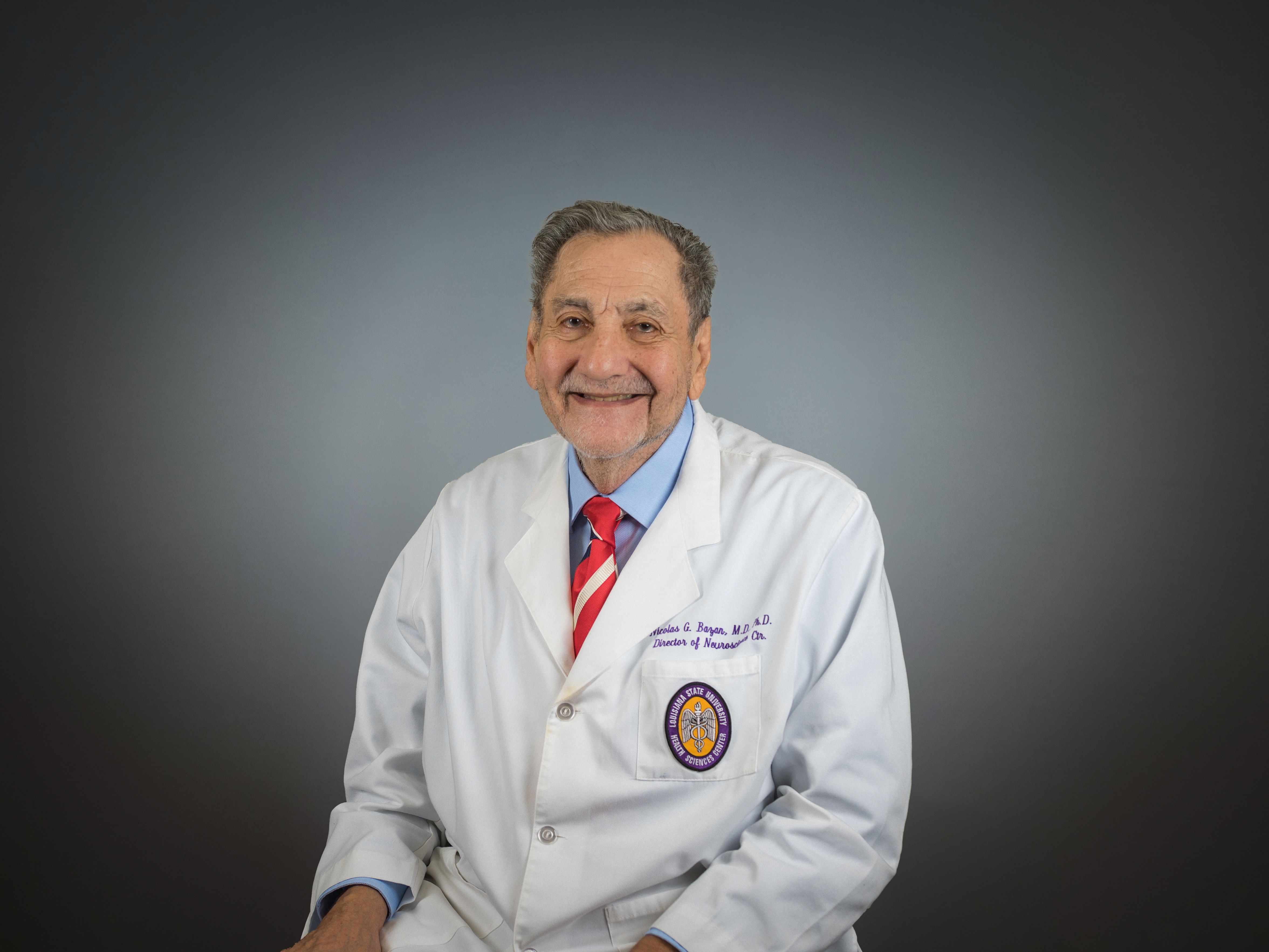Dr. Bazan Presents New Discoveries on Neurodegenerative Diseases at International Conference
Dr. Bazan and his team discovered molecules produced by the brain which protect against stroke, traumatic injury, and Alzheimer's disease.
 Dr. Nicolas Bazan, world renowned neuroscientist and director of LSU Health New Orleans’
Neuroscience Center of Excellence, and his team made an innovative discovery that
can change the approach to treatment of critical brain injuries and illnesses including
stroke, ALS, traumatic brain injuries (concussions), spinal cord injury, Alzheimer’s,
and Parkinson’s. By uncovering a neuroprotective molecule produced by the brain, for
which Bazan and his team coined the name Elovanoids (ELVs), they are working to find
ways to put those molecules to work in the brain to protect against brain injuries
and neurodegenerative illnesses.
Dr. Nicolas Bazan, world renowned neuroscientist and director of LSU Health New Orleans’
Neuroscience Center of Excellence, and his team made an innovative discovery that
can change the approach to treatment of critical brain injuries and illnesses including
stroke, ALS, traumatic brain injuries (concussions), spinal cord injury, Alzheimer’s,
and Parkinson’s. By uncovering a neuroprotective molecule produced by the brain, for
which Bazan and his team coined the name Elovanoids (ELVs), they are working to find
ways to put those molecules to work in the brain to protect against brain injuries
and neurodegenerative illnesses.
Dr. Bazan was asked to present his findings at a distinguished international conference in April in Rome, Italy. “Neurodegenerative Diseases from molecular mechanisms to prospective therapies” was sponsored by the Italian Academy of Sciences (Accademia dei Lincei), the German Deutsche Zentrum für Neurodegenerative Erkrankungen (DZNE) and Springer/Nature.
The ELVs, discovered by Dr. Bazan and his research team, are derived from omega 3 fatty acids, which are known for the many health benefits they provide including lowering blood pressure and preventing heart disease and stroke. The work that Dr. Bazan presented in Rome shows that ELVs are cell-specific mediators necessary for the protection of brain synaptic integrity. This discovery, and Dr. Bazan’s continued work in this space, will fill gaps in prevention and treatment of diseases like Alzheimer’s and Parkinson’s.
“Our ongoing quest in medicine is, in a way, reflected as a response to one major challenge to civilization: the growing incidence of dementia,” shared Bazan. “Although age is the main risk factor, not everyone develops dementia during aging.”
The lecture disclosed studies using experimental traumatic brain injury (concussions) or stroke, which are conditions that in many instances lead to cognition deficits and even dementia. The design of the study included intranasal delivery of ELVs after those injuries and the subsequent identification of cell-specific gene expression as well as of encoded proteins. This was determined by analyzing 25,000 different cells from the cerebral cortex using AI machine learning algorithms.
“Dr. Bazan’s inclusion in this conference is a testament to the pivotal research he and his team are conducting every day,” said LSU School of Medicine Dean Dr. Richard DiCarlo. “We are proud to support and foster research into preventing and treating neurodegenerative diseases, which are rising steadily due to our aging population.”
Traumatic brain injuries and stroke cause dysfunctions related to calcium signaling, mitochondrial function, cell-cell interactions, perturbations in cell specific clusters and oxidative stress. ELVs alter these cell specific impairments to promote neuroprotection after one of these incidents. Decreased cognition has been neither preventable nor treatable; however, growing evidence through Dr. Bazan’s research supports the notion that it is preventable and at least delayable in many instances.
The lecture concluded by highlighting beneficial and well-defined actions of ELVs relevant to sustain cognition and successful aging. Dr. Nicolas Bazan was honored with a special Cell Death & Differentiation (CDD) Award in recognition of this translational research during the conference.
